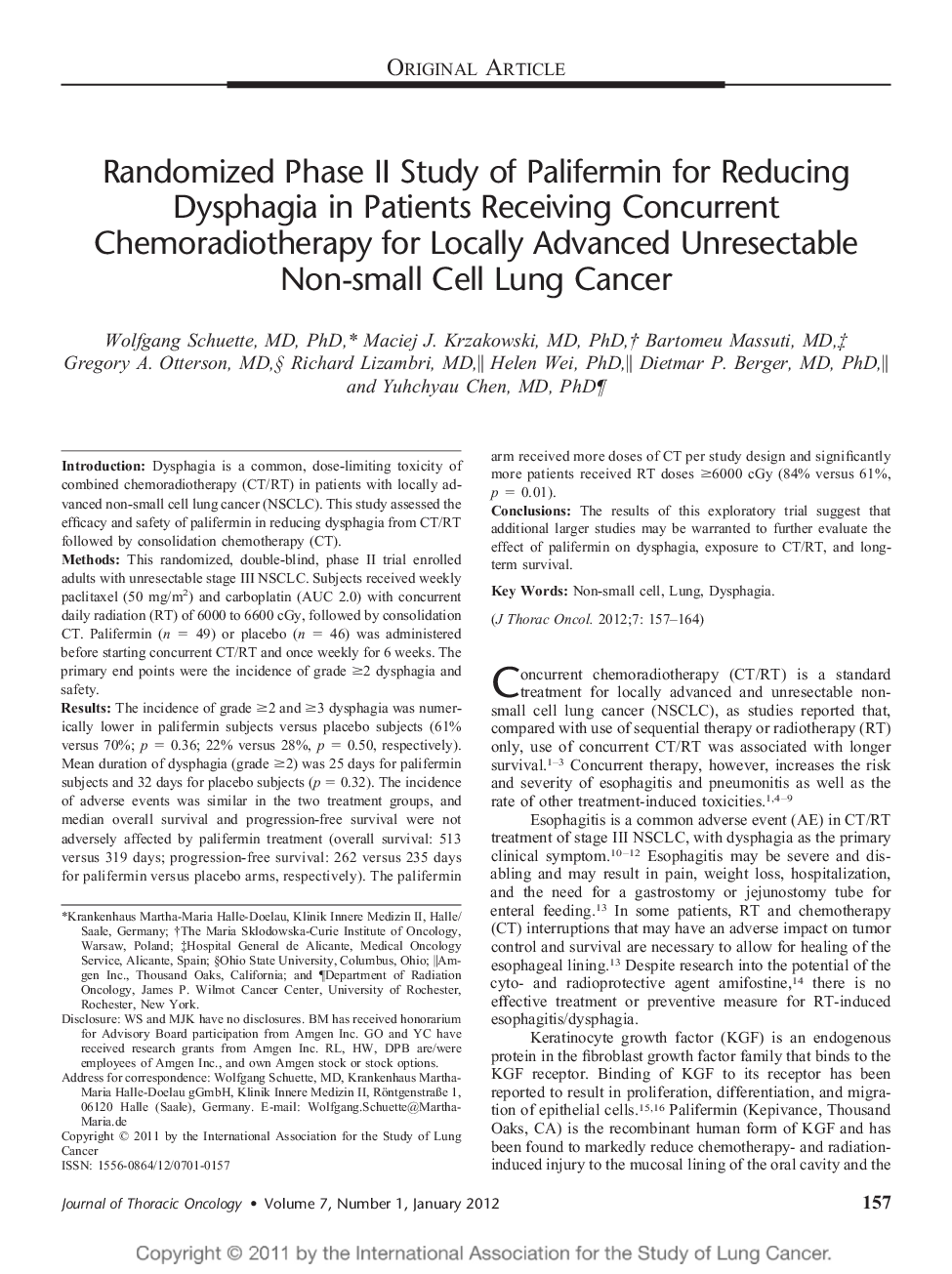| Article ID | Journal | Published Year | Pages | File Type |
|---|---|---|---|---|
| 3990853 | Journal of Thoracic Oncology | 2012 | 8 Pages |
IntroductionDysphagia is a common, dose-limiting toxicity of combined chemoradiotherapy (CT/RT) in patients with locally advanced non-small cell lung cancer (NSCLC). This study assessed the efficacy and safety of palifermin in reducing dysphagia from CT/RT followed by consolidation chemotherapy (CT).MethodsThis randomized, double-blind, phase II trial enrolled adults with unresectable stage III NSCLC. Subjects received weekly paclitaxel (50 mg/m2) and carboplatin (AUC 2.0) with concurrent daily radiation (RT) of 6000 to 6600 cGy, followed by consolidation CT. Palifermin (n = 49) or placebo (n = 46) was administered before starting concurrent CT/RT and once weekly for 6 weeks. The primary end points were the incidence of grade ≥2 dysphagia and safety.ResultsThe incidence of grade ≥2 and ≥3 dysphagia was numerically lower in palifermin subjects versus placebo subjects (61% versus 70%; p = 0.36; 22% versus 28%, p = 0.50, respectively). Mean duration of dysphagia (grade ≥2) was 25 days for palifermin subjects and 32 days for placebo subjects (p = 0.32). The incidence of adverse events was similar in the two treatment groups, and median overall survival and progression-free survival were not adversely affected by palifermin treatment (overall survival: 513 versus 319 days; progression-free survival: 262 versus 235 days for palifermin versus placebo arms, respectively). The palifermin arm received more doses of CT per study design and significantly more patients received RT doses ≥6000 cGy (84% versus 61%, p = 0.01).ConclusionsThe results of this exploratory trial suggest that additional larger studies may be warranted to further evaluate the effect of palifermin on dysphagia, exposure to CT/RT, and long-term survival.
